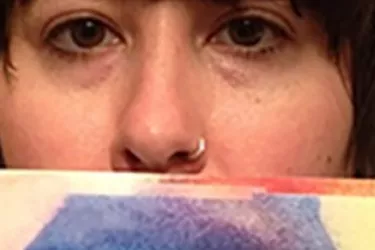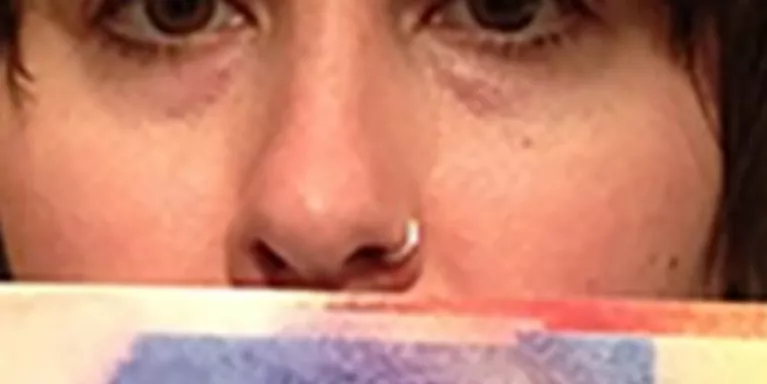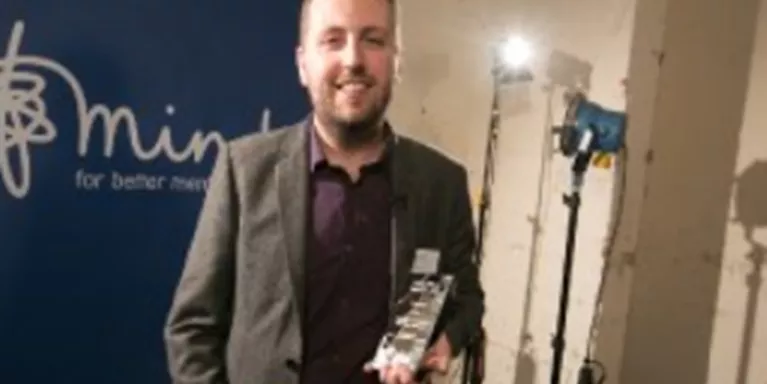'Being Bipolar' - why I feel let down
Laura from our Digital team writes a guest blog about her own experience of bipolar disorder and why she feels 'Being Bipolar' misrepresented this diagnosis.
Laura is blogging here in a personal capacity.
I was diagnosed with bipolar disorder type 2 about three years ago in my late twenties. My psychiatrists held off with this diagnosis for a couple of years - they explained to me, bipolar disorder is not a diagnosis they rush into, particularly as treatment usually involves medication that comes with serious side effects.
When I was told I might have bipolar disorder, in some ways, it was a relief. It felt like an explanation for the way I sometimes felt and behaved. It helped me make sense of this to an extent and gave me a starting point to find out more and read about the experiences of other people with this diagnosis.
But it also meant accepting that I had it for life, which was not a relief. The prevailing medical opinion is that bipolar disorder is a chronic condition caused to a significant degree by underlying biological factors (although these aren’t yet understood). Accepting this meant I might be taking medication for life. When I first read the list of side effects of the medication I’d be taking, my first impulse was to flush it down the toilet. It was scary stuff. But I took it and I feel that medication has really helped me over the years.
I watched Channel 4’s 'Being Bipolar' on Wednesday night with some trepidation. Generally I find programmes about mental health quite hard to watch because it can be triggering to watch other people in distress.
I also feel quite nervous when I see programmes like this advertised because it’s really important to me that mental health issues are portrayed accurately on television, and frequently they aren’t. It’s hard enough having an illness that many people don’t understand without having it misrepresented on national television.
Since my first hypomanic episode, I’ve always been interested in the causes of bipolar disorder. What happened to me felt so unreal and beyond my control. As Sian in ‘Being Bipolar’ also described, it felt like someone flicked a switch in my head. I went from feeling extremely anxious to feeling on-top-of the world, excited, hyperactive, invincible. When my mood changes, it happens for no reason that I’m aware of. When it does, the way my mind works becomes very different. When I’m depressed I don’t feel like myself – I’m very far from my normal way of being and thinking. When I’m hypomanic, I feel like a heightened version of myself. My mood changes often feel very physical. When I start to feel hypomanic, my brain feels like its fizzing. When I’m depressed, my brain and the rest of my body feels dull and heavy.
I’ve always wanted to understand more about why I feel like this. I also want to understand why I have to take the medication I do.
I don’t feel that ‘Being Bipolar’ helped me at all in this understanding.
‘Being Bipolar’ was presented by Philippa Perry, who, as a psychotherapist, naturally has a bias towards environmental factors. I felt that the journey she undertook to understand the causes of bipolar disorder was rather insincere. As the programme progressed it became increasingly apparent that she had undertaken this journey with preconceived ideas and many things along the way seemed to be misinterpreted to fit a preconceived narrative.
The whole area of biological factors was tackled in a very simplistic way, skimming over the surface of academic research in this area. Sian’s psychiatrist spoke of a “chemical imbalance” so Philippa met with Consultant Psychiatrist and academic Dr. Joanna Moncrieff to debunk this. Joanna Moncrieff is probably the most prominent anti-psychiatrist in the UK so this was hardly a neutral choice.
Joanna told viewers there is "no evidence that bipolar disorder is caused by a chemical balance" and there is "not even an agreement about what chemical may be involved in bipolar disorder". I felt this was not a particularly useful route to go down. “Chemical imbalance” is simplistic and not really the prevailing theory. Current research, which is in its infancy, has found evidence of biological factors in several different areas: nerve endings, endocrine systems; neurotransmitters; glutamate receptors; differences in grey and white matter; misregulation of calcium channels; and genes. It’s certainly true that there is no agreement about what chemical is involved, but the brain is a very complex organ – why should bipolar disorder come down to one chemical? In my view there is significant evidence that biology is a crucial factor in bipolar disorder and the programme ignored vast areas of research.
Joanna then explained her views on medications used to treat bipolar disorder and Philippa concluded "although the drugs might provide some temporary relief, they don't actually cure anything", before telling viewers "that's a surprise to me".
To me, the idea that Philipa was surprised by this is quite unbelievable. I don’t think my medication (lithium) cures my bipolar disorder. It helps with the symptoms. These medications are not targeted enough to be viewed as a ‘cure’ by scientists and doctors (and to present them in this way to patients would be misleading). But surely Philippa Perry, as a psychotherapist with an interest in this area, would have known this already? This statement was a strange distortion of current understanding and suggesting it was some sort of amazing revelation in the journey to understand bipolar disorder seemed very odd to me. The subject of medication for bipolar disorder, and for psychiatric illness in general, is far more complex than was presented in the programme.
Next, Philippa met Professor of Neuroscience Ian Jones, who seemed far more of the medical-model persuasion, to talk about genetics. He explained that there was not "a gene" underlying bipolar disorder but many hundreds or thousands of different genes involved in increasing or decreasing the risk. That seems reasonable to me – genes are complicated, eh? Ian Jones states in no uncertain terms that bipolar disorder is not 100% environmental and there are genetic factors involved.
Although Philippa accepts this 'reluctantly', she still seems to interpret this evidence as showing Sian is wrong for thinking only one gene was at fault.
She also doesn’t seem to think this finding has any bearing on the issue at hand. It seems these genes are just hanging around in the background, not affecting any brain processes at all…
Early on in the programme, Philippa has a “growing suspicion that the symptoms each person develops are a result of their life experiences”. To me this seems quite a wild conclusion based on having met just three people – not a very representative sample. Moreover, it goes against what these people have told her about their own experiences (for example, she seems to ignore their repeated assertions that they haven’t experienced childhood trauma). It also goes against the experiences of many thousands of other people, who have taken part in valid scientific research in this area.
I'm not saying that life experience isn't a factor, but I don't believe it's the only factor as implied in the programme.
Philippa’s view is that psychotherapy is the answer rather than medication. I've had Cognitive behavioural therapy (CBT) to help me deal with my mood swings, which was helpful. When my mood dips, CBT helps me to cope to some extent, but it doesn’t really help me get out of this state and it doesn't prevent the mood swings – that’s what my medication does. I’ve tried other, deeper psychotherapy but this didn’t last long because the therapist didn’t think there were any issues I needed to explore. That’s not to say, it won’t help some people, but this isn’t the simple solution presented in the programme.
The conclusion to ‘Being Bipolar’ is that "Sian has a choice" and Philippa would like her to stop being "a slave to her emotions".
I have a choice. I choose to take lithium. Before I started taking this I’d been off work for four months with severe depression. When I started taking it, it made me feel like my normal self, pretty much straight away. Not a lesser, dampened, sedated version of my normal self (although it does make me tired) - just normal, default-mode Laura. This is the thing that helps me not to be a slave to the emotions that take over my mind without warning every now and then.
‘Slave to her emotions’ is a very loaded term and the tone of the programme regarding medication seemed quite moralistic and paternalistic to me. With any mental illness the interaction between biological and environmental factors, and the direction of influence between these, is complex. Whatever the combination of these factors, if a person chooses to take medication, that is their choice, and it’s a valid choice. Likewise, if they choose not to.
To me, ‘Being bipolar’ misrepresented bipolar disorder. It was unscientific and I believe disingenuous. With a more balanced exploration and with the three participants being more at the forefront of the story, it could have been so much better.
Why does this matter so much? One of the reasons is that this type of misrepresentation can result in stigma and discrimination. I’m really lucky to work for a mental health charity where there is a lot of understanding of bipolar disorder and other mental illnesses – my manager is really understanding when I’m not feeling well. Could someone else’s manager have watched this programme and will now blame their employee for being a slave to their emotions? Many people are unable to work at all because of bipolar disorder – will they be stigmatised further than they already are? I really hope not.

See what we're campaigning on

Information and support
When you’re living with a mental health problem, or supporting someone who is, having access to the right information - about a condition, treatment options, or practical issues - is vital. Visit our information pages to find out more.
Share your story with others
Blogs and stories can show that people with mental health problems are cared about, understood and listened to. We can use it to challenge the status quo and change attitudes.

















